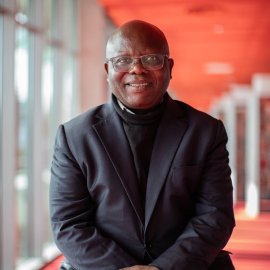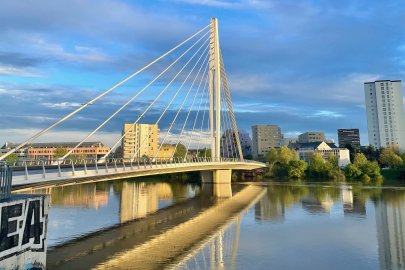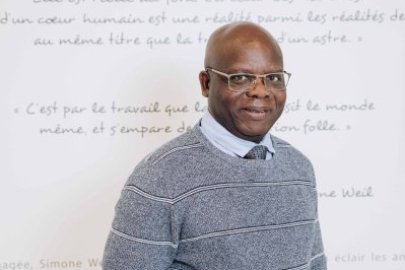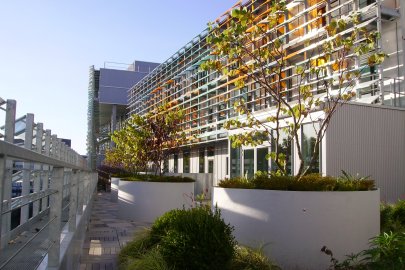Deputy Director 22-24 / Director 24-25

Fellow from January to March 2017
Deputee director from 2022 to July 2024.
Pierre-Etienne Kenfack is Director from July 2024 to July 2025.
Pierre-Etienne Kenfack, a Cameroonian national, is a university professor.
After graduating in law with a doctorate from the University of Yaoundé 2, he went on to complete a thesis in legal theory at the University of Paris 1 in 2003. He then undertook post-doctoral studies at the Centre de droit comparé du travail at the University of Bordeaux IV, before graduating as Section Major in the Concours d'agrégation de droit privé.
Head of the Department of Legal Theory and Director of the Master in Legal Theory and Pluralism at Yaoundé 2 University in Cameroon, he teaches legal research methodology, legal theory and philosophy, land law and social law.
Pierre Etienne KENFACK is Visiting Professor :
- Université Paris 1-Panthéon-Sorbonne (teaching land law and land law and development policies) ;
- Université Toulouse 1-Capitole (teaching OHADA law, legal pluralism and land law);
- the University of Turin (teaching traditional and customary African law);
- the University of Eastern Piedmont (teaching traditional and customary African law).
After several publications in social law and in the field of legal sources, his research today focuses primarily on the law of land and natural resources and African traditional rights. He has supervised several doctoral theses in civil law, land and natural resources law and OHADA law, defended in French and Cameroonian universities.
Pierre Etienne KENFACK was Rector and Dean of the Faculty of Law at the International University of Libreville.
He was Deputy Director of the Institute between 2022 and 2024.
He is Director of the Institute in from July 2024 to July 2025.
"Agro-land investments and rights of people in francophone countries in central Africa"
The search for land for agro-industrial plantations has become increasingly widespread in light of the recent financial and food crises in the world. Searching for safe-havens or land to grow crops destined to feed their populations or bio-fuel, investment funds and certain industrialised States seek and obtain vast areas from Central African States through concessions. These investments affect the rights of both public and private individuals. They affect the rights of the contracting State which, in Africa, is sometimes represented by people who, inadequately trained in international transactions or unconcerned about the public interest, sell off the land in opaque transactions, on a willing-seller/willing-buyer basis. They jeopardise food security and the survival of the people occupying and using this land who are treated as third parties despite their actual occupation of this land prior to the establishment of the States of the Central African subregion. How can we ensure that these investments are no longer made to the detriment of the rights of the State and communities? Such is the aim of this project which will give rise to several articles and perhaps a book on the subject.


